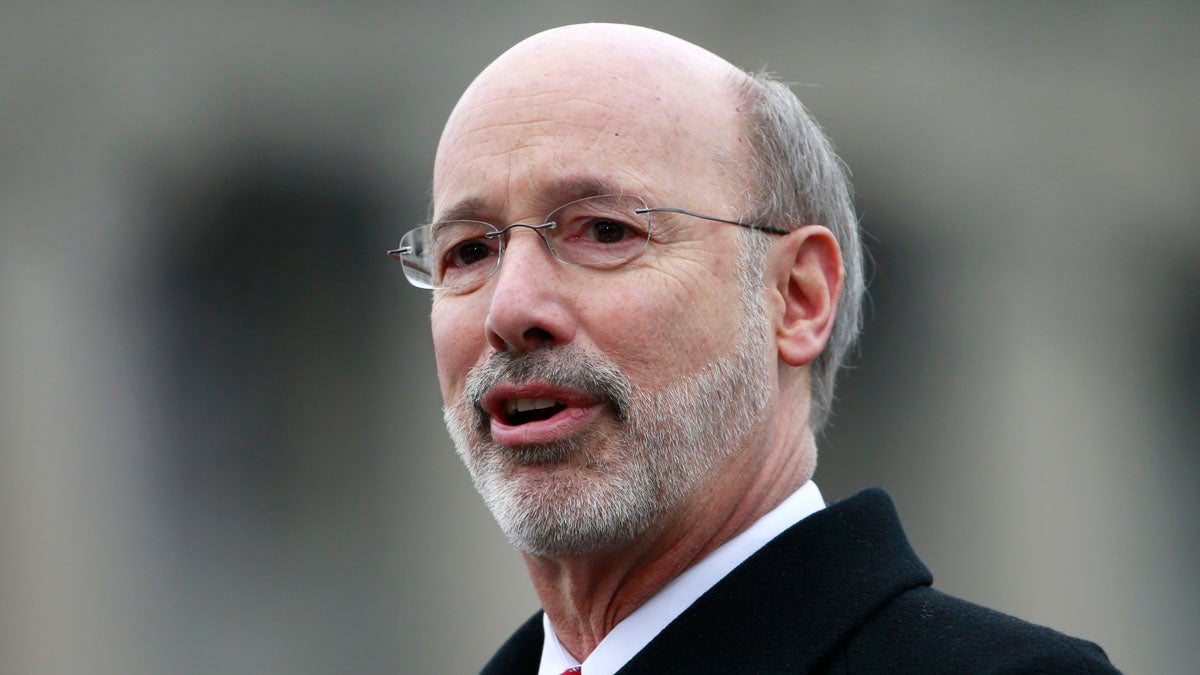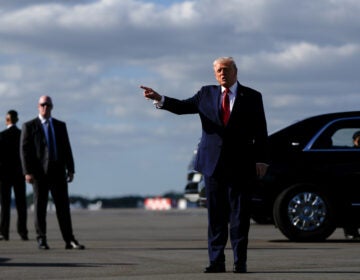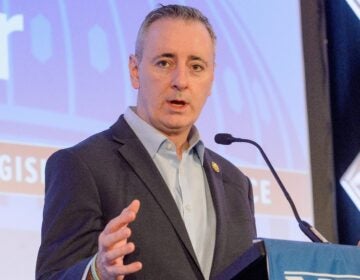Pa. lawmakers skeptical of Wolf plan for borrowing to fund budget
Some legislators are debating the legality of the governor's proposal to borrow $1.2 billion against liquor industry profits.

Pennsylvania Gov. Tom Wolf will allow a bill to become law that weakens teacher seniority and gives school districts more flexibility in their rationale for making layoffs. (AP)
Pennsylvania lawmakers are grappling with the implications of Gov. Tom Wolf’s unexpected decision to balance part of the state budget himself by borrowing against the liquor industry.
House and Senate members are currently trying to figure out whether Wolf is legally able to do so. Meanwhile, the commonwealth’s short-term cash-flow issues remain unresolved.
House Republican spokesman Steve Miskin said while most of his caucus prefers borrowing $1.2 billion against Liquor Control Board profits over tax increases, they’re still not sold on the idea.
“There are definitely questions. The main concern is, is it legal and can he unilaterally do it?” Miskin said Monday.
“We don’t think he should,” he added. “If he thinks he’s able to, why hasn’t he done this already? Why did he wait three months, not pay bills, etcetera?”
They don’t have a definitive legal opinion yet.
Administration Budget Secretary Randy Albright has said the office believes it can securitize liquor sales, so long as the Liquor Control Board agrees to the plan.
“This is fully within the authority of the LCB,” he said last week. “We can look backwards over a multi-decade period — they have made annual transfers sufficient enough to cover that amount of revenue.”
LCB board officials said they’ll work with the administration.
But Albright — and the governor — acknowledge the liquor money won’t come in soon enough to fix the commonwealth’s short-term cash problem.
The main bank account has been running dangerously low for most of this fiscal year.
Medicaid payments are due in mid-October and major school payments are scheduled for the end of the month.
The administration hasn’t specified what it will do yet. But Wolf spokesman J.J. Abbott said the administration is confident that “following the governor’s actions to balance the budget, pending payments to school districts, Medicaid providers and others who rely on state payments will be made on time.”
Wolf has said those actions will include “managing” state employee numbers through attrition, and taking other unspecified actions to cut costs.
He also announced Monday that he plans to borrow more money to further plug the $2.2 billion budget gap — this time by leasing out the Pennsylvania Farm Show complex for $200 million up front, then leasing it back for an annual fee, plus interest.
In recent years, similar cash flow issues have been handled via a short-term loan from the state treasurer. This year, Treasurer Joe Torsella declined to extend a line of credit because the budget wasn’t balanced.
His office hasn’t confirmed whether the governor’s plan to borrow against liquor profits and the Farm Show complex will change that.
WHYY is your source for fact-based, in-depth journalism and information. As a nonprofit organization, we rely on financial support from readers like you. Please give today.





